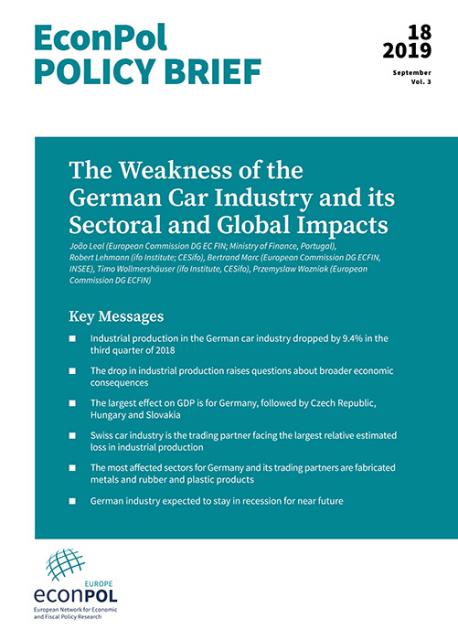The Weakness of the German Car Industry and its Sectoral and Global Impacts
Industrial production in the German car industry dropped by 9.4% in the third quarter of 2018, creating an immediate impact on its main trading partners and causing global and sectoral losses. The decline is mainly due to problems with the implementation of the new Worldwide Harmonized Light-Duty Vehicles Test Procedure (WLTP). As the car producing industry is the most important sector for the German economy and is deeply integrated into international value-added chains, this policy report presents estimated sectoral and
global impacts due to this sharp drop.
Industrial production in the German car industry dropped by 9.4% in the third quarter 2018 mainly due to problems with the implementation of the new Worldwide Harmonized Light-Duty Vehicles Test Procedure (WLTP). As the car producing industry is the most important sector for the German economy and is deeply integrated into international value-added chains, this policy report presents estimated sectoral and global impacts due to this sharp drop. The most affected sectors are fabricated metals and rubber and plastic products, both in Germany and its main partners, that deliver intermediate inputs (for example, the Czech Republic). From a global perspective, the largest effect on gross domestic product (GDP) is – with -0.75% – estimated for Germany. On top, the three most affected countries are the Czech Republic (-0.21%), Hungary (-0.20%) and Slovakia (-0.18%).
João Leal, Robert Lehmann, Bertrand Marc, Timo Wollmershäuser, Przemyslaw Wozniak, The Weakness of the German Car Industry and its Sectoral and Global Impacts, EconPol Policy Brief 18, September 2019
